The commercial epoxy flooring market is one of the fastest-growing industries in North America. The food manufacturing industry has been a significant driver for this type of epoxy floor coating, as they are one of the largest sectors in the commercial construction industry.
Food manufacturing facilities want to ensure that their products stay safe and secure in a sanitary environment. And a high-quality epoxy product provides a hygienic, easy to clean, and seamless surface to work on without any significant risk of injury.
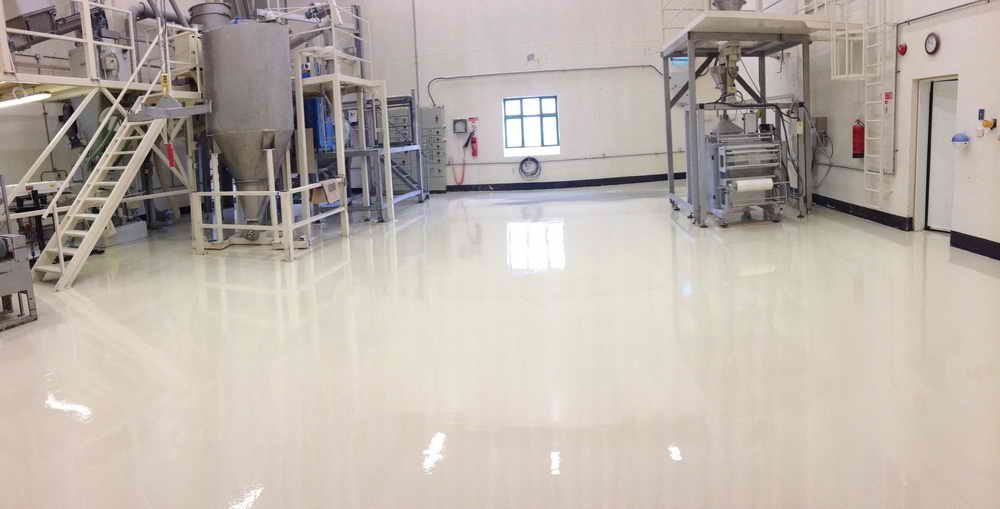
What is a commercial epoxy floor system, and what are the benefits?
The use of commercial epoxy floors for food and beverage plants presents many benefits, the most important being that they are easy to clean, non-slip, and fire-resistant.
Epoxy provides a no-mess surface that requires little maintenance and helps keep floors well maintained even in some of the most challenging conditions.
Furthermore, commercial epoxy flooring provides a non-slip and fire-resistant surface that is a safety requirement in any industry.
Epoxy, or polyester resin-based, flooring is considered one of the best options for use in food processing plants. It provides floors with a nonskid additive that helps prevent slippage on wet and greasy surfaces.
However, there are so many types of flooring options in the market available today. The food and beverage industry should consider the pros and cons of each option before deciding on their final and best choice for their unit.
What types of commercial epoxy flooring exist, and what are the differences?
There are three types of commercial epoxy floors:
- Top-coat:
This is the most common type used in food processing facilities, as it is safe even for dishes and requires very little maintenance. It is also ideal for production lines, where floors need constant cleaning.
This EPF system is also ideal for use in places with a lot of machine and foot traffic, like on food industry floors. - Chemical Resistance:
This type of flooring is chemical resistant, and it is perfect for places where the floor is prone to chemical spills or chemicals such as harsh cleaning products. This type of EPF is usually smooth and glossy and is excellent for places where the floor experiences a lot of machine traffic. - Seamless:
A seamless epoxy floor type is a combination of the two previous types. It is common on production lines and places where the floor does not endure much machine traffic.
This type of EPF usually has a smooth, medium to a high-gloss finish. It is perfect for places where the floor experiences a lot of foot traffic, like in industrial settings.
How are commercial epoxy flooring products made, and how are they different from other options?
There are a variety of mixtures used in making epoxy floors. Typically, these include solid and liquid components such as resin and hardener or primer and stone, respectively.
A combination of different additives makes these resins more flexible, water-resistant, self-leveling, and desirable features.
The flooring can constitute many different materials, including vinyl, concrete, tiles, stone, and many other materials. The solvents used can be anything petroleum-based, water-based, or even CO2-based.
Unlike other floor systems, an epoxy floor is easy to clean, slip-resistant, resistant to abrasion, and withstand large amounts of heat and thermal shock.
It is also much more substantial than most vinyl floors which means it can be used for plant flooring experiencing a lot of wear and tear.
Where are commercial epoxy floor systems typically installed, and how does it compare to other floors?
Commercial epoxy systems are standard in areas with heavy traffic and constant exposure to fumes, thermal shock, or chemical products. It is highly resistant to most chemicals, including hot water, oil, and fat.
Ideal places to use epoxy floor coatings
Food and beverage processing facilities
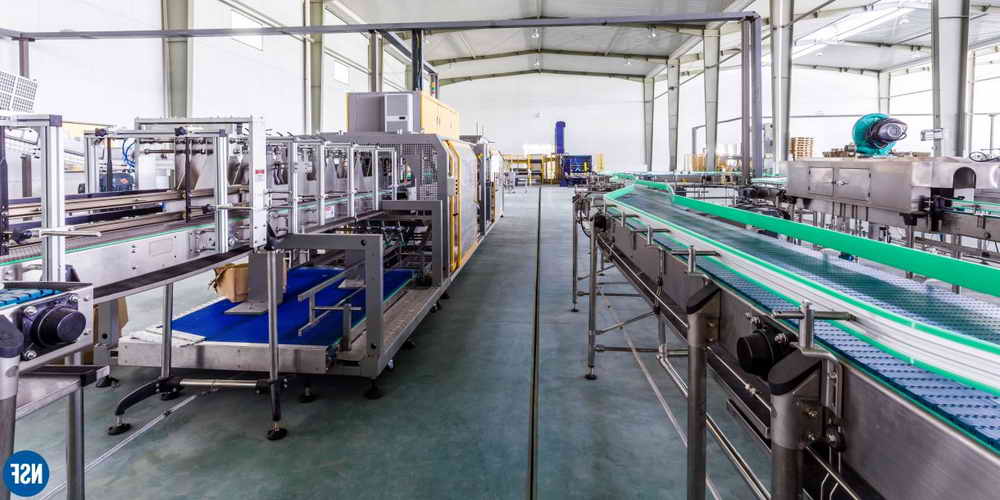
Flooring is tough to maintain in the food and beverage processing sector, and epoxy perfectly caters to the food processing floor needs. EPF helps by providing quality and hygienic food processing solutions to customers in every corner of the United States.
The floor is strong, impact-resistant, and abrasion-resistant. The materials are resistant to harsh conditions like the regular use of chemical cleaning products and possible corrosion.
Commercial kitchens
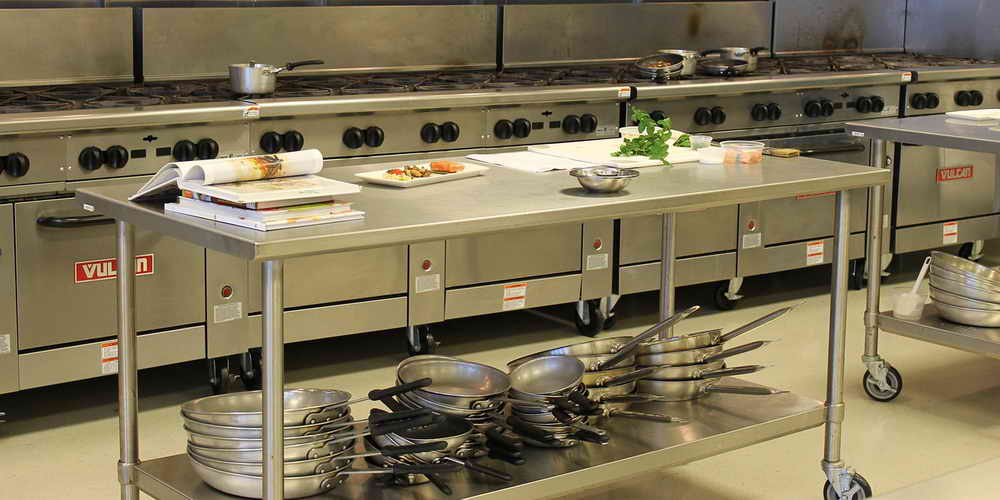
Your responsibility is to maintain a safe environment with the highest standards in your commercial kitchen. Epoxy floors’ anti-microbial design is unlike traditional tile floor surfaces, where bacteria you can usually find bacteria trapped within grout lines.
Select EPF systems also offer high chemical, heat, and slip-resistant coating, making cleaning floors easy and safe.
Food industry
The floor of the food industry is usually exposed to contaminating materials resulting in significant concrete damage, which can get highly toxic to the environment.
Typically floor coating is thus an essential part of the booming food industry since the floor impacts the entire building. It supports the food products industry regarding hygiene and efficiency of manufacture.
UCOAT material is an example that is strong enough to provide the necessary protection to keep the facility safe and prevent contaminants from entering the substrate.
Distribution facilities
The distribution center deals with a high volume of fast-moving employees and large machinery on the loading docks and food packaging areas.
The floors need to be hygienic and easy to clean to avoid the possible contamination of food purity. Installing epoxy coating systems is one of the most efficient solutions for upgrading the flooring in your facility.
Food beverage processing areas
Preparing food can be exciting work, mainly when surrounded by clean areas for preparation. Spaces with dirt, however, can cause fungal growth to destroy the surface and lead to contaminated food and beverage products.
Food processing units using anti-microbial floor coatings help prevent bacteria from entering the consumers’ homes. The coatings provide a durable surface and kill bacteria immediately and efficiently.
Food processing facilities
Almost all the time, new products are recalled in the United States, mainly because unprotected floors at the processing plants lead to contamination of food products.
The wrong flooring is also difficult to clean, and poor slip resistance can result in slips and falls. A USDA-approved floor system is a perfect solution to these problems and prevents unnecessary recalls.
Antibacterial in design, epoxy coat provides a protective barrier and can withstand abrasion, stains, and dents. It provides an impermeable, nonporous, and hygienic surface. The flooring can be cleaned quickly without chemicals and disinfected easily.
What risks do you need to be aware of when choosing a specific type of flooring for your food manufacturing plant?
It is important to understand the potential material risks before installing it in commercial kitchens or spaces. As food manufacturing plants need to produce safe food for consumption, care must be taken when selecting the right flooring.
Conclusion: Why should you choose commercial epoxy floors?
Food manufacturing plants face some of the harshest conditions in any industry. There’s the increased traffic and variety of different chemicals it has to endure.
Along with punishing cleaning and wash down processes involving boiling water or even steam to remove grease, blood, and other contaminants, per hygiene regulations.
The floor in the process experiences extreme temperature changes, wet conditions, and possible thermal cycling. These conditions can eventually lead to delamination, cracks, and other forms of deterioration.
The food processing facility knows that their floors need to comply with the task. Their flooring systems should exhibit abrasion resistance and sustain exposure to thermal shock or cycling conditions.
Industrial and commercial kitchen floor coating that is water-based even helps prevent the transfer of odors common in food processing plants.
And this is why commercial antimicrobial epoxy is an excellent solution for these harsh working environments and can withstand the wear and tear of daily operations.
Contact Extreme Industrial Coatings today for all your commercial epoxy flooring technical support and needs for your food manufacturing facility, plant, or restaurant!


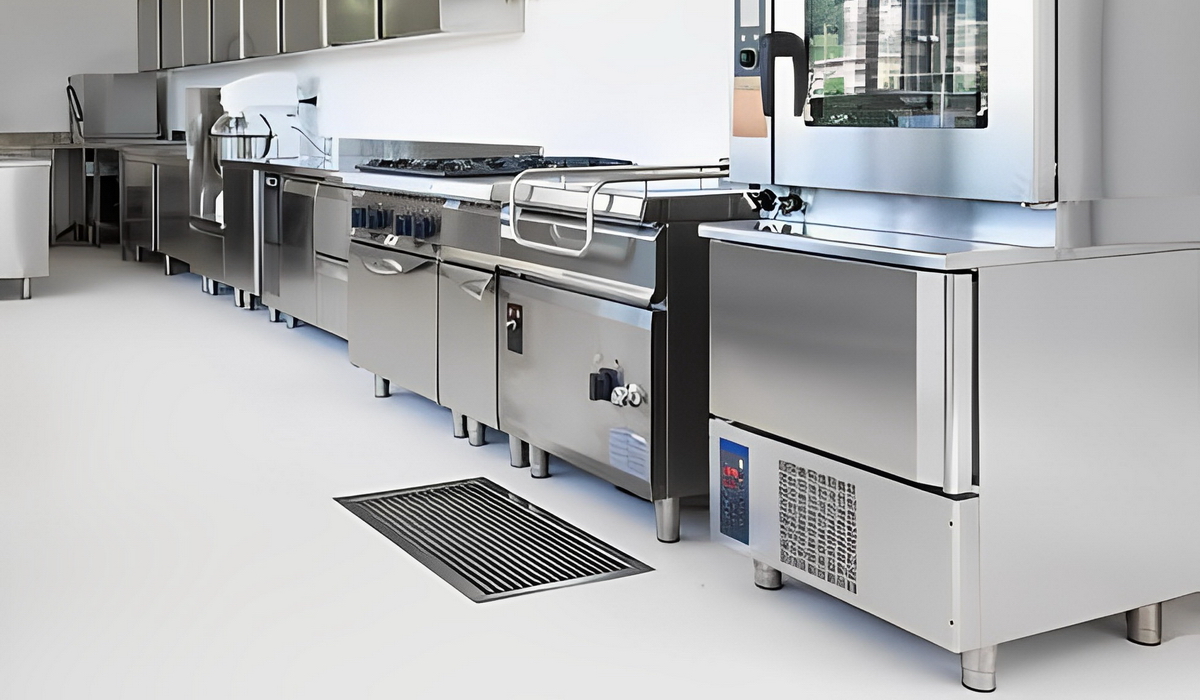
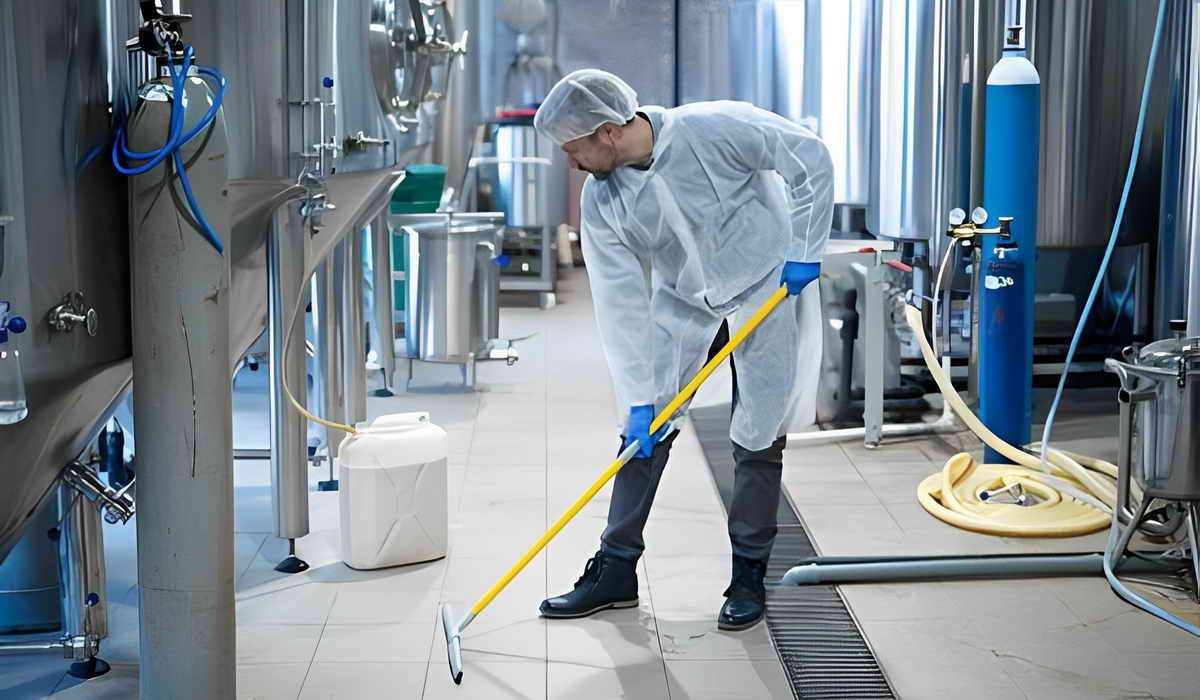
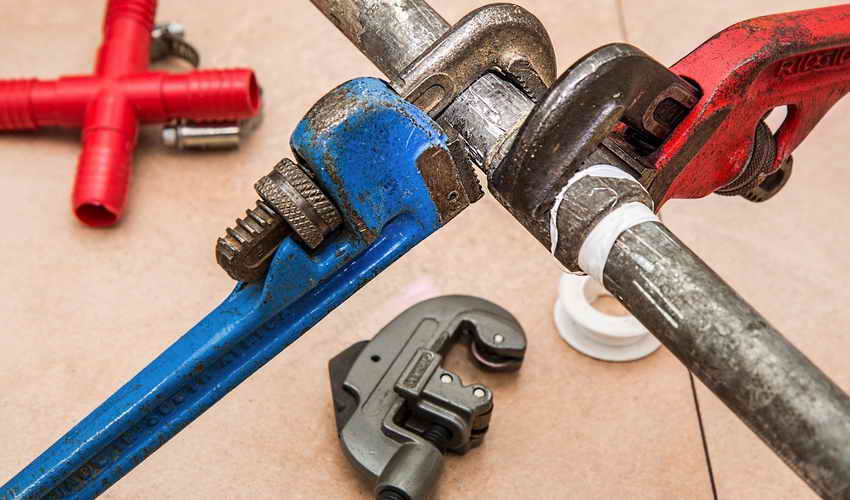
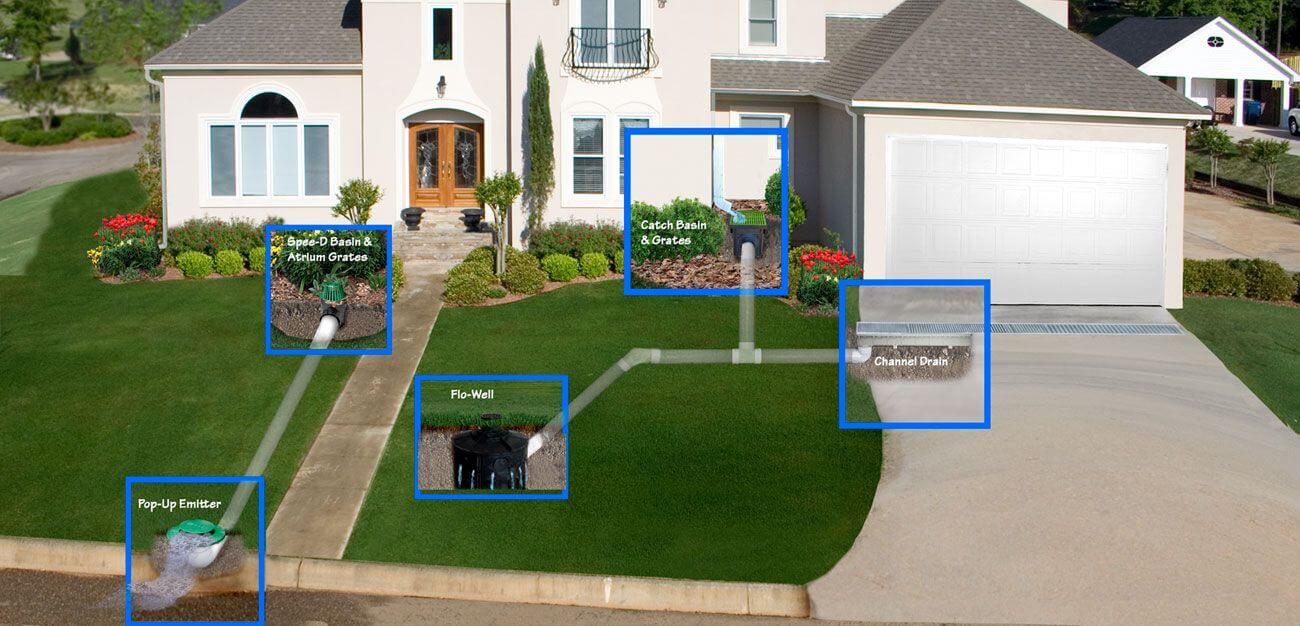

[…] and floor types that would best suit your needs. Here are five of the most important advantages of industrial resin floors over concrete. Read them carefully to make the best decision for your production facility or […]